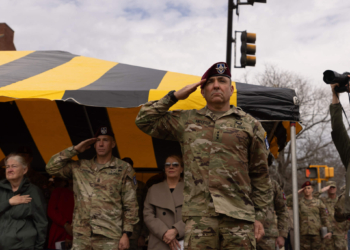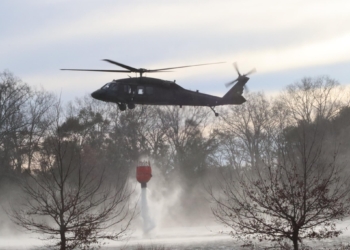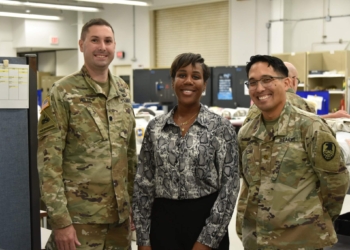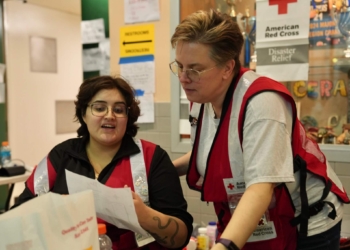Amid the historic snowstorms and frigid temperatures that battered the Lone Star state earlier this year, members of one Texas military community gathered to save hundreds of green sea turtles left cold-stunned along the shore.
According to Defense Logistics Agency Distribution Corpus Christi (DDCT), the water in Corpus Christi Bay dipped to 31 degrees, which is significantly colder than the turtles can tolerate. As a result, the animals went into a “cold-stunned” state, a condition similar to hypothermia. Some perished, others bobbed listlessly in the water, while many others still washed up on shore, where they caught the attention of the military community.
“We knew with the weather changing that the turtles would be in danger,” Cheryl Jason, a Navy spouse, said. She, along with her husband, Capt. Christopher Jason, commanding officer of Naval Air Station Corpus Christi (NASCC), monitored the animals along base beaches. Once they realized the turtles were suffering, Christopher rescued several in his kayak.
Cheryl posted a photo of their efforts on social media and the mission quickly went viral. “Volunteers from all ranks, dependents, retirees came into action,” she said.
Marine spouse Shannon Slocum saw the post and decided to head to the beach to see the situation for herself.
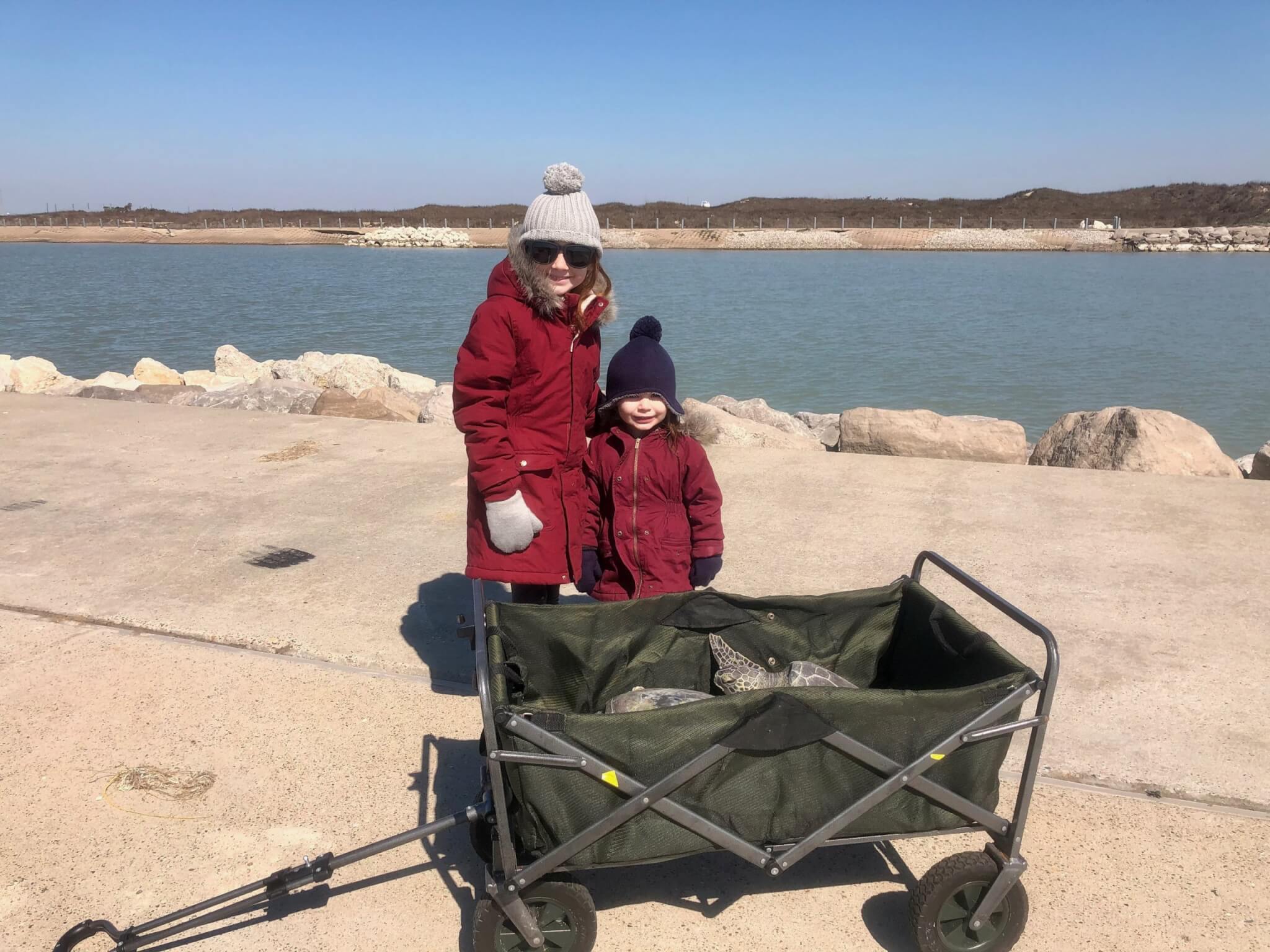
“We arrived down there with our kids in tow and were devastated to find at least 50 cold-stunned sea turtles who were washed up along a very small beach area on the base,” Slocum said, adding that they had no idea nearly 800 more turtles would drift to the shore in the days after.
Slocum worked as fast as she could but was soon overwhelmed by the sheer volume of animals washing ashore. She too turned to social media for help.
“I took a quick video of what we were doing and posted it to the Corpus Christi Spouses Facebook page, and people responded to help in droves.”
Helpers got to work with quick and creative thinking and assisted in any way they could, Slocum said, noting that people used everything at their disposal including kayaks, paddleboards, and rescue diving gear. Her husband, 2nd Lt. Mark Slocum, and a friend created an impromptu pulley system made of a laundry basket and ropes.
“From that small effort alone, I think they pulled up 12 turtles that otherwise had no way of being rescued.”
Over the next three days, Slocum and her family, with the help of the Padre Island National Seashore, transported more than 150 cold-stunned sea turtles to rescue facilities.
Navy spouse Emily Kalbach, a GS employee who works at NASCC, and her daughter joined the effort, offering support, towels, and gloves to the volunteers. In the days that followed, she used her minivan to transport hundreds of turtles from the beach to the DDCT facility.
“I can’t quite put words to the heaviness of the situation,” Kalbach said. “The anxiety we felt, fear, the awe, all those feelings that drive people to react and take action when a need arises.”
When buildings at NASCC proved too cold, base leadership connected with a variety of agencies, including the Texas Parks and Wildlife Commission, to find appropriate facilities and ensure the turtles were being cared for properly.
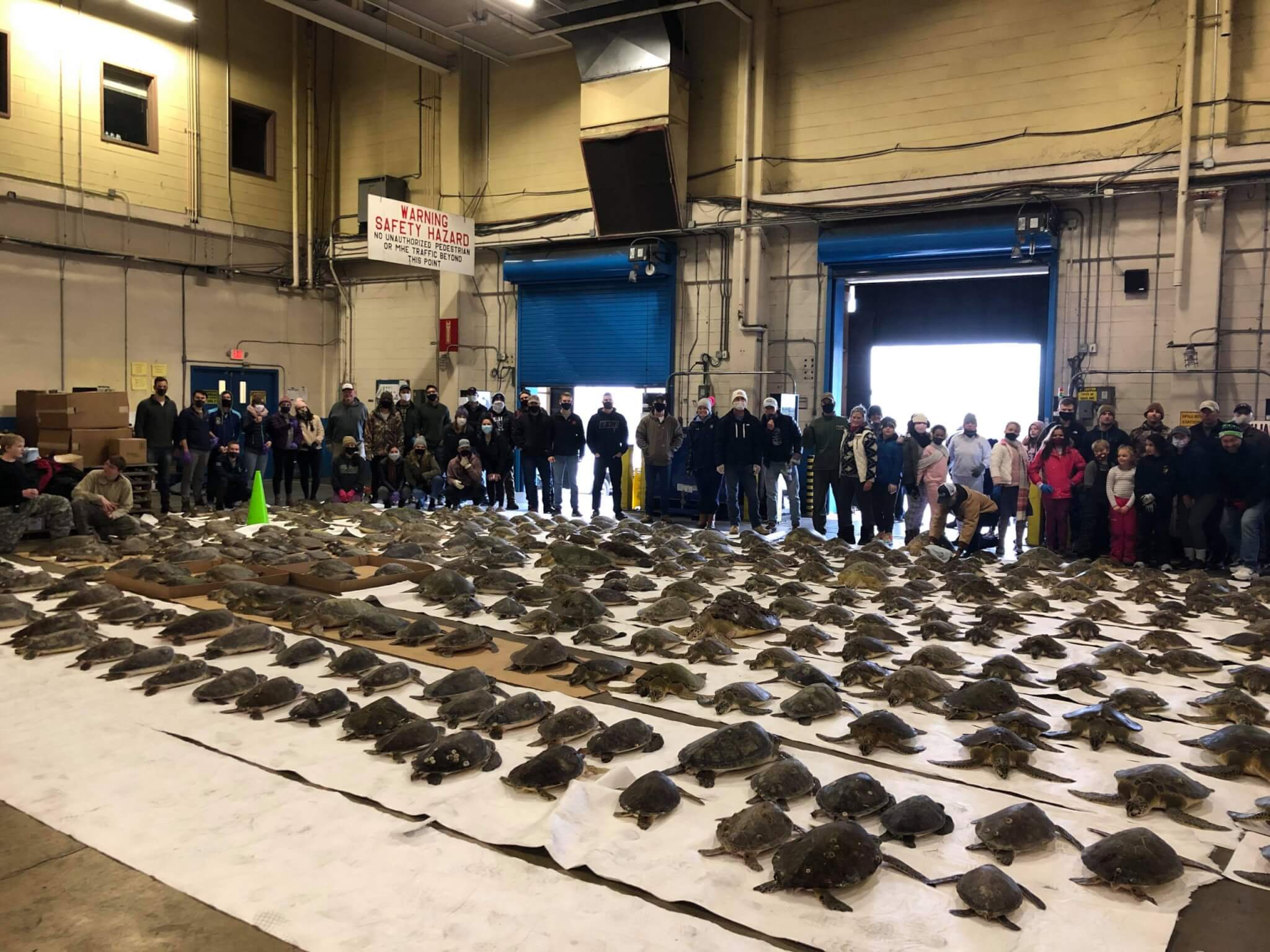
DDCT’s employees spent the night wrangling turtles that tried to scurry away, keeping the animals’ eyes moist, and having a squadron of pilots take “turtle watch.” Their efforts helped to save 750 turtles.
Biji Pandisseril, NASCC’s environmental director, said that it was a group effort, as everyone from officers and enlisted, retirees, Coast Guardsmen, DOD civilians, and on- and off-base individuals took part.
“This was not only a good example of the military helping the environment, but also a great example of diverse people coming together for a common good,” said Pandisseril.
The Texas State Aquarium says it admitted and cared for more than 1,000 cold-stunned sea turtles at its Wildlife Rescue Center, nursing them back to health in a large, heated rehabilitation saltwater pool. Since the rescue, it has released approximately 950 of the animals back into their habitats.
“We greatly appreciate the ongoing partnership with NAS Corpus Christi,” Texas State Aquarium Senior Vice President and Chief Operation Officer Jesse Gilbert, said.
According to Gilbert, the rapid response of the community is the reason so many animals stand a chance of surviving rehabilitation and ultimately being released back into the wild.
Looking back on the experience, Slocum says tight-knit communities such as Corpus are built to field these types of situations.
“I have to say, as a military spouse/family, especially a seasoned one, you learn very quickly what it means to adapt and overcome difficult situations. We made do with what we could, and at the end of the day, we were just really proud of our efforts.”
You can find this story and more in our May issue of Military Families Magazine. Download it here.
Read comments


















